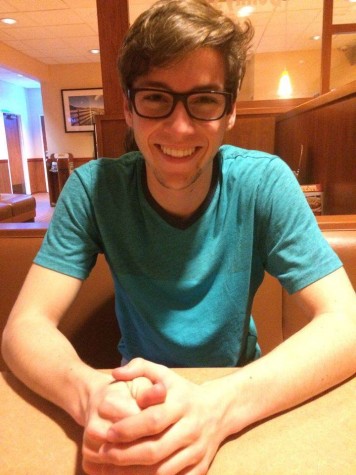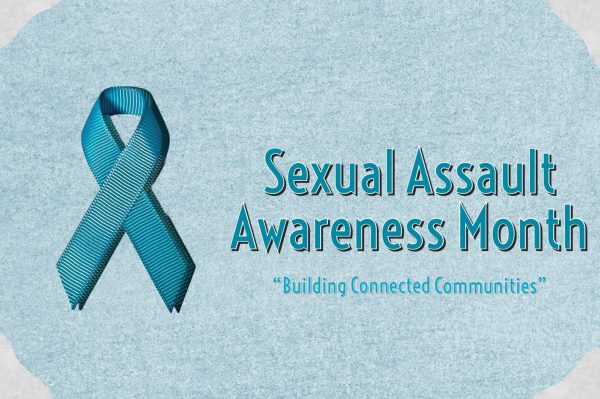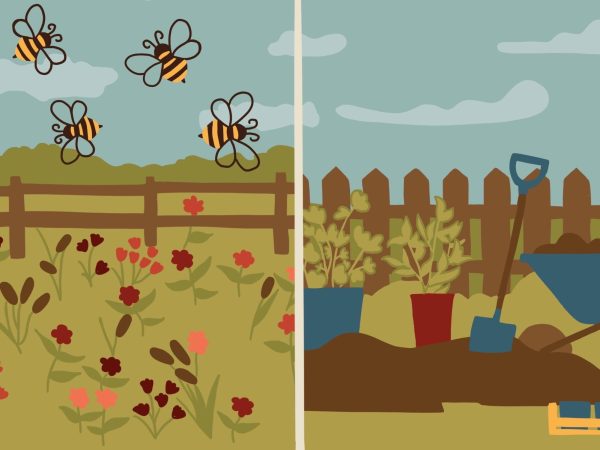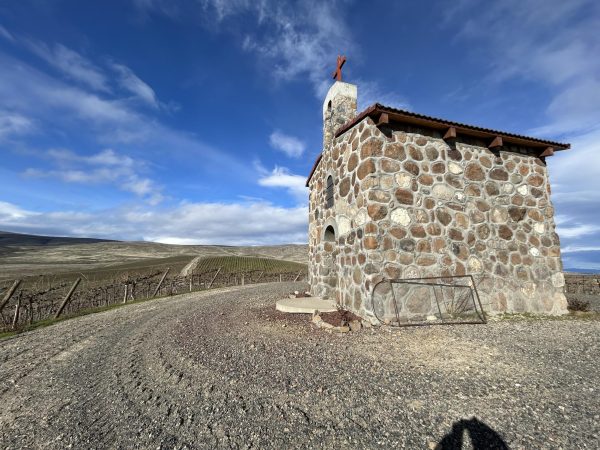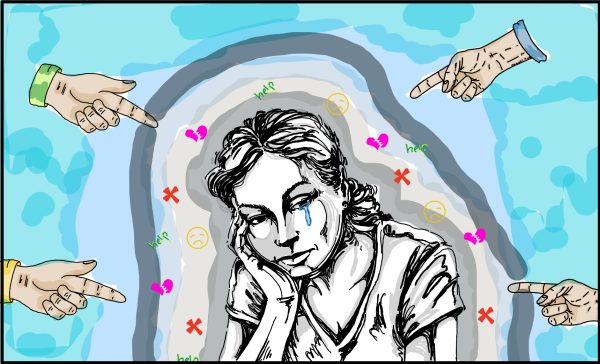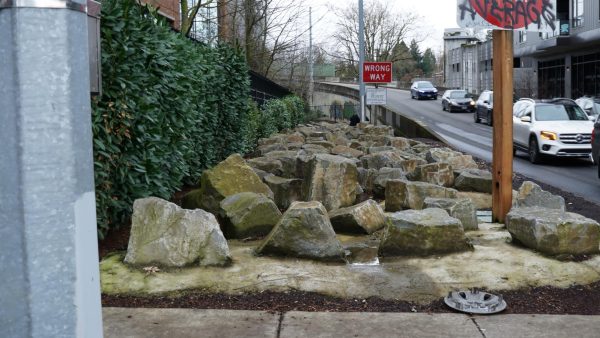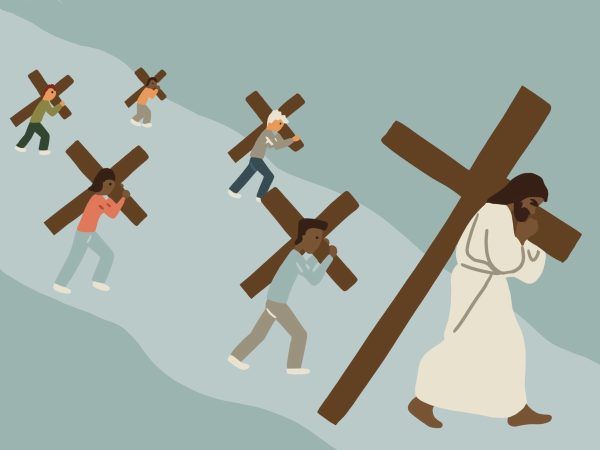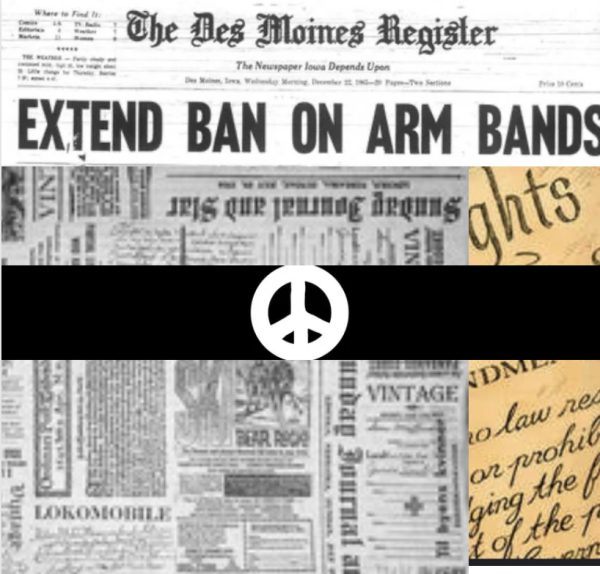Reflections on Making a Documentary From Scratch
June 3, 2016
The video above is the result of six months of walking around the streets of downtown Portland, and interviewing people experiencing homelessness, and speaking with as many people in positions of both political and non-profit leadership as I, Tyler Persons, and Duncan Hildreth, could. Below is a reflection on the last two years I have spent making documentaries on homelessness.
In March of 2014 the Portland Trail Blazers tweet “what would you do for two lower-level playoff tickets?” Without thinking, I reply “I would solve homelessness in Portland.” I win the tickets, go to the game, the Blazers win, and I go home with my dad.
Driving home in the drizzly Portland spring it is impossible to not notice the high number of people sleeping under the bridges, adjusting their cardboard in sheltered storefronts, or sitting hopeless in the rain. I wonder at that moment what it would actually take to solve homelessness in a city that has had such trouble with it over the past decades. I know that before I can even think about solving homelessness, I have to understand it.
In the following weeks I will read several Oregonian articles about the homeless crisis and search online for related documentaries. I find one based in New York that inspires me to find out the stories of the homeless in my own city. I quickly discover that to understand homelessness, I have to leave my house and start talking to people.
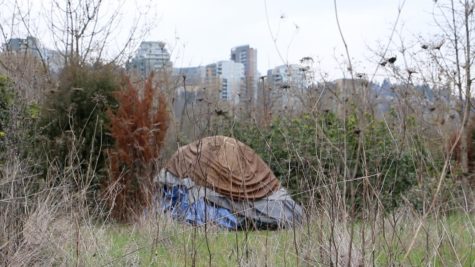
That November, I start by walking around downtown with my camera, shooting things that catch my interest: homeless men sleeping on the sidewalk, homeless couples with dogs, abandoned cardboard huts, a full block of tents in front of an old school, homeless people lining up for food at places I had volunteered, and so on. I know at this point that although I cannot solve homelessness, I can make an impact in a different way through my own documentary, one that is both artistic and honest, one in which I show that homeless people are just normal people in unfortunate circumstances who, rather than be ignored, deserve our attention.
To hear and record the stories of different homeless individuals I go out every weekend during the coldest and wettest months–starting winter break and ending in late April. My curiosity and drive to find out more information grows every day. I learn there are many reasons for homelessness: PTSD, addiction, domestic violence, mental illness, a massive decrease in the federal budget for housing, et cetera. Even with Portland’s city-record number of homeless facilities, financial aid, and increased drug enforcement, homelessness is still not being solved.
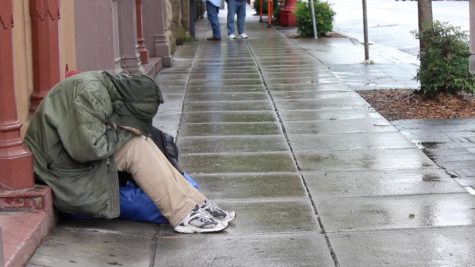
After emailing an esteemed Oregonian writer, I am connected with Lio Alaalatoa, a homeless facility outreach worker, who spends five nights a week driving around downtown giving to homeless people food, tarps, clothes, hot chocolate, and other necessary items for surviving the cold. I ask to spend a night driving around with him, and he joyfully invites me. Listening to Lio, I know that if anyone has an answer to Portland’s homeless crisis, it is he. From his experience spending almost every night with people experiencing homelessness, creating relationships with them, and hearing their stories, he believes that homelessness is rooted in unhealthy family relationships common in the United States. I discover this night that the problem appears insurmountable, for it requires efforts from every aspect of society. I realize that the person who may have the best chance of solving the problem is the one who ultimately understands its hopelessness, but still works every night moving homeless people into housing. And maybe that’s where part of the solution lies–doing what we can no matter how complex or insurmountable the problem is.

Throughout the six month process of making the documentary I did manage to solve a few problems, such as how to portray the subjects in an informative, honest, and interesting way; how to make a full length documentary on no budget; and how to get a stranger to tell me his or her life story. I found that to solve any problem requires commitment, passionate resolve, and a love for the work. I found that my passion attracted other young people to come along on weekend trips with the same hope to do something that matters–for people who matter.
This year, I wanted to make another documentary about homelessness. So I did. Starting in December, senior Duncan Hildreth and I emailed as many people in positions of political leadership and leaders of nonprofits as we could asking for interviews, starting last winter with the executive director of the Street Roots, Israel Bayer, and ending with Ted Wheeler, who was elected as mayor of Portland a few weeks ago. We went out and filmed as often as we could. In April, juniors Tyler Persons and Joel Simmons started to help out Duncan and I in getting as much B-roll as possible to keep the documentary visually interesting.
After over 300 cumulative hours of editing 6 hours of footage down to a 40 minute documentary on an old, broken-down laptop that I have used to edit projects since 7th grade, Relying on Kindness is finished.


